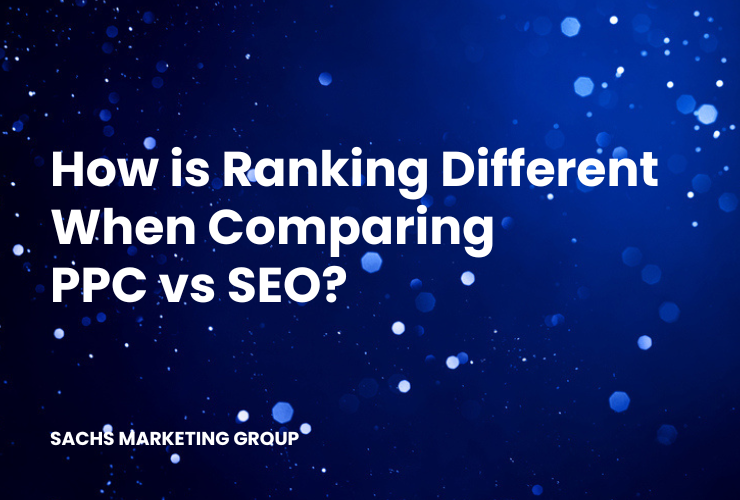How is ranking different when comparing PPC vs SEO? Ranking in PPC involves bidding for ad placement, offering immediate visibility, while SEO focuses on organic ranking through content quality and keywords, requiring more time but offering long-term results.
Two major players dominate the search engine marketing scene: PPC (Pay-Per-Click) advertising and SEO (Search Engine Optimization).
While PPC shoots for immediate visibility through paid ads, SEO takes a slow and steady approach, aiming to climb the search engine ranks organically. These approaches have many differences, but ranking prominently is the root of both. The better your rankings, the better your visibility and clicks.
Ranking may bridge both worlds, but what works for PPC ads differs from what works for SEO content and vice versa.
So, how is ranking different when comparing PPC vs SEO?
Overview
How is Ranking Different When Comparing PPC vs SEO?
Understanding the difference in ranking between PPC and SEO is crucial.
PPC rankings are driven by the advertiser’s budget and ad quality, providing immediate visibility at a cost.
In contrast, SEO focuses on organic search results, relying on keyword optimization, content quality, and backlinks to climb the ranks. While PPC offers quick placement in search engine results, SEO builds a sustainable, long-term presence.
These distinct approaches highlight the diverse strategies needed for each. Here’s what you need to know about the difference between ranking PPC ads and ranking SEO content.
Here’s what you need to know about the difference between ranking PPC ads and ranking SEO content.
Ranking Paid PPC Ads
Ranking paid PPC ads involves a strategic blend of financial investment and ad quality.
When an advertiser sets up a PPC campaign, they decide on a bid amount for each click their ad might receive. However, not just the highest bidder wins the top spot.
Search engines like Google use a metric called Quality Score, which assesses the ad’s relevance to the user’s search query, the quality of the landing page, and the expected click-through rate. This scoring system ensures that users see ads that are not only relevant but also of high quality, enhancing the overall user experience.
The final ad rank combines the bid amount and the Quality Score, determining where the ad appears in the search results.
Factors
- Bid Amount: Higher bids can lead to better ad placement.
- Quality Score: Google evaluates ad relevance, landing page quality, and click-through rate.
- Ad Relevance: Ads must align with search queries for better ranking.
Challenges
- Cost: Bidding wars can ramp up expenses.
- Constant Optimization: Requires regular tweaking and testing.
- Competition: Highly competitive keywords take time to rank for.
Ranking Organic SEO Content
Ranking organic SEO content is a process that delivers value and relevance to the user.
Unlike PPC, where financial investment plays a significant role, SEO focuses on optimizing web content to earn a higher position in search results naturally. This involves crafting content that resonates with the audience’s needs and interests integrating relevant keywords strategically without overstuffing.
Search engines evaluate the content’s quality, relevance, and user engagement. They also consider the authority of the website, often determined by the number and quality of backlinks from other reputable sites.
The aim is to provide users with the most valuable and authoritative content in response to search queries. As search engines become more sophisticated, they increasingly prioritize content that offers genuine value, ensuring that higher-ranking sites best answer the user’s intent.
This approach to ranking rewards consistency, quality, and relevance, making SEO a long-term strategy focused on building a sustainable online presence.
Related: How Long Does It Take to Rank on Google?
Factors
- Keyword Optimization: Strategic use of relevant keywords.
- Quality Content: Valuable, informative, and engaging content.
- Backlinks: Links from reputable sites enhance credibility.
Challenges
- Time-Consuming: SEO takes time to yield results.
- Content Saturation: Standing out in a sea of content can be tough.
- Algorithm Changes: Frequent updates require agility and adaptability.
The Difference Between Ranking PPC Ads and SEO Content
The difference between ranking PPC ads and SEO content is akin to the contrast between a fast-paced race and a strategic, long-distance run.
PPC is about quick results, offering immediate placement in search engine results through financial investment.
It’s a strategy that allows businesses to appear at the top of search results almost instantly, albeit at a price. This immediacy is beneficial for short-term campaigns or to boost visibility for time-sensitive offers. However, the moment the budget runs out, the visibility gained through PPC evaporates.
SEO is a more gradual process, akin to a marathon, where endurance and consistent effort are essential.
It involves building organic credibility and authority over time. This is achieved through creating high-quality, relevant content and optimizing various on-page and off-page elements like keywords, meta tags, and backlinks.
The rewards of SEO are durable and long-lasting. Once a high ranking is achieved organically, it tends to sustain itself with minimal ongoing costs compared to PPC. While SEO takes longer to show results, its benefits are more enduring, offering a stable and credible online presence.
This fundamental difference in approach and timeframe between PPC and SEO highlights their distinct roles in a comprehensive digital marketing strategy.
Need Help with Your PPC Ads?
It can take a long time to fine-tune a PPC ad if you don’t have experience or knowledge of what works and what doesn’t. At Sachs Marketing Group, we understand the intricacies of creating PPC ads that work.
As a full-service digital marketing agency, we offer expert PPC ad management services to enhance your online presence.
Our team offers expert PPC advertising services with tailored strategies to maximize ROI, ensuring your ads rank and convert.
Contact us today and let us handle the complexities of PPC advertising so you can focus on growing your business.
Conclusion
Now that you understand the differences between ranking paid PPC ads and organic SEO content, you can consider which approach is best for your company. Understanding how ranking differs in PPC and SEO is fundamental in shaping an effective digital marketing strategy.
While PPC offers immediate results, SEO promises sustained long-term success. Both have unique benefits and challenges, and the choice depends on your business goals and resources. By mastering both, you can ensure a robust and dynamic online presence.
Contact us today to get the conversation started!













